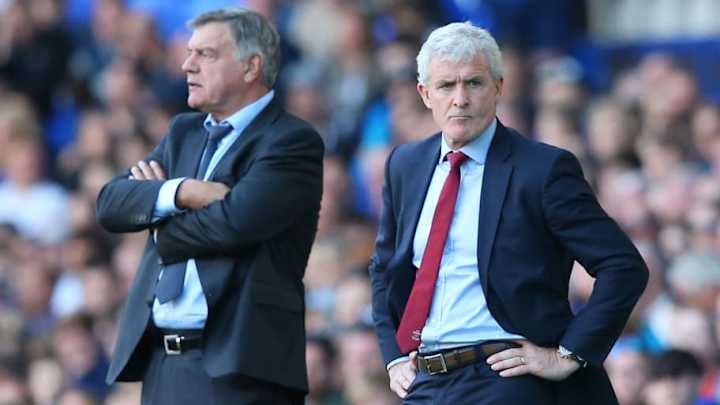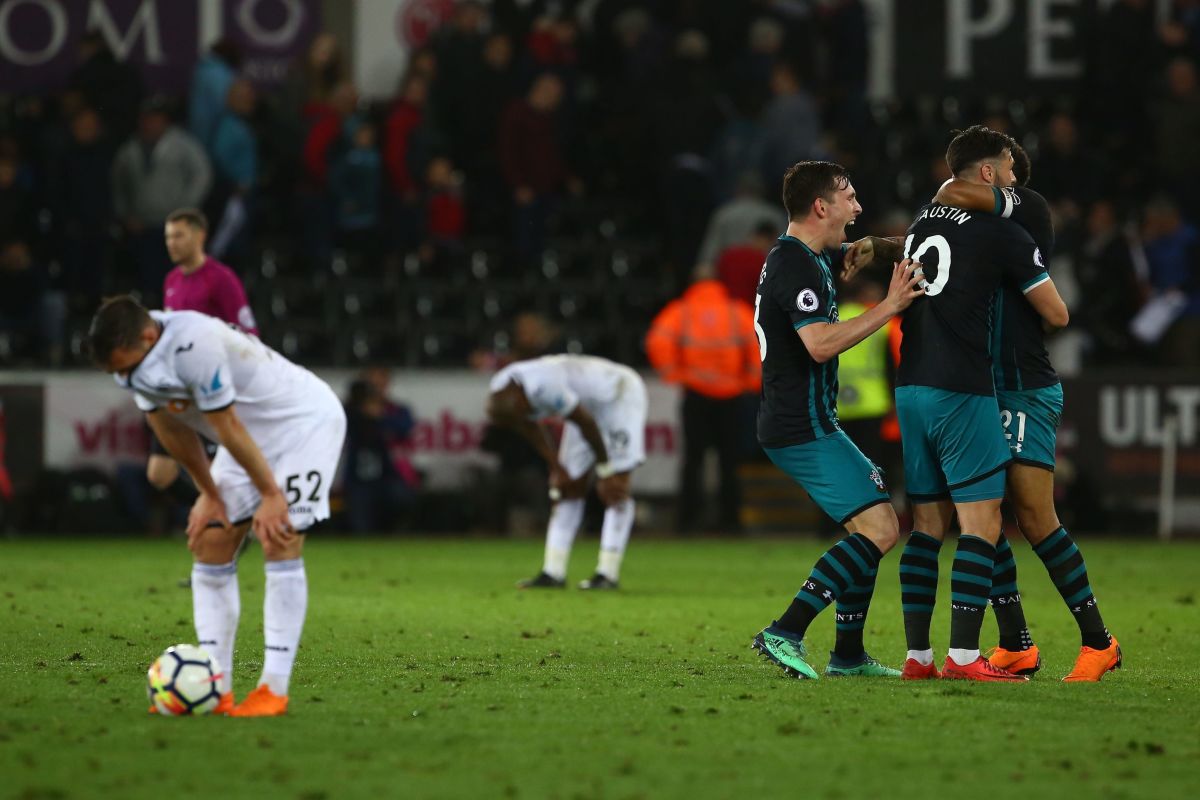Southampton Have Been Sucked into Managerial Merry-Go-Round as They Face Identity Crisis

Southampton have now appointed Mark Hughes as the club's permanent manger heading into next season. The 54-year-old who had seemingly been reduced to the role of relegation firefighter has endeared himself enough to the board to be allowed a crack at taking the club forward.
Hughes - who had as good as relegated Stoke City before taking up the Southampton post - passed what was effectively a 10-week trial period by keeping the south coast club in the Premier League following important victories against both Bournemouth and Swansea in the end of season run-in.

Yet Hughes has never felt like a natural fit for the Saints. The club, since their promotion back to the Premier League in 2012, have tended to favour budding foreign managers, with the likes of Mauricio Pochettino and Ronald Koeman both passing through with relative success.
However, both Claude Puel and Mauricio Pellegrino appeared to fit the mould of the modern Southampton manager, yet both were replaced within the year - and although Puel to a large extent was unfairly treated, fired after leading the club to an eighth-placed finish - the appointment of Pellegrino proved to be misguided and very almost led to the club's relegation from the Premier League.

This strategy had worked for some time, but in appointing managers who do not view their long-term future at the club, it becomes harder to garner a shared identity within a club that routinely loses managers to either bigger clubs or to a lack of immediate success.
Swansea are a case in point, their ultimate demise was a result of losing touch with the brand of football that had come to embody the club under the likes of Brendan Rodgers and Roberto Martinez.
The Welsh club's six managers in five years made it impossible for the team to sing from the same hymn sheet and ultimately resulted in a lack of cohesion that ended in the side's eventual relegation.

And whilst Southampton's recruitment had for a long time provided a blueprint for teams looking to establish themselves in the Premier League, it is impossible to continue to successfully replace both managers and key players year on year and remain competitive.
So Southampton seek a manager who can steady the ship and build to the future and their answer to this conundrum is Mark Hughes.
On the face of it, the decision looks questionable. Hughes has struggled to demonstrate any kind of sustained success in management, better known for rocking the boat at the likes of Fulham and Queens Park Rangers.
His involvement in player recruitment has also come under major criticism. Stoke City's decline was in part down to a squad imbalance caused by a team packed with flare players but lacking any of real substance - while Queens Park Rangers are still yet to recover, in part, from Hughes' reckless spending that left the club in near financial ruin.

However, Hughes demands some credit from his spell at Stoke City. In his first three seasons he did exactly what was demanded of him, leading his side to successive ninth-place Premier League finishes, serving up attacking football that the Potters faithful so dearly craved after Tony Pulis.
So it is reported that Southampton have 'committed' themselves to Hughes for the next three years. This shows a level of confidence in their man, but what does not demonstrate confidence is the reported break clauses and performance-orientated goals that will need to be met in order for Hughes to see out his contract.
The fear amongst relegation threatened clubs is palpable. Chairmen and owners across the country are petrified of losing their status in England's top-flight. With so much money floating around the Premier League, no club can afford a bedding-in period for managers, resulting in the managerial merry-go-round with which we have become so familiar.

This gives supporters little confidence that Hughes will still be in the job this time next year and such uncertainty will breed uneasiness amongst everyone at the club. Such an unsteady foundation for which to build upon means Hughes is already fighting a losing battle, yet it is his reputation that will be damaged if anything were to go wrong, not the reputation of the Southampton board.
No wonder that clubs with long-term outlooks are thriving in the Premier League, the likes of Brighton and Hove Albion and Huddersfield Town, Bournemouth and Burnley have all given their managers time to build a team in their image, forging club identities that permeate throughout their respective sides.

It takes bravery for cub owners and board members to keep faith in a manager. Burnley were brave in 2015 when the club were relegated from the Premier League and instead of ditching Sean Dyche, they allowed him to rebuild in the Championship and now for the first time in 50 years his side has European football to contest with.
Southampton are at risk of suffering the same fate that befell the likes of Sunderland and Swansea before them, becoming a part of the managerial merry-go-round is a dangerous game.
'The Southampton Way' is becoming harder and harder identify, but if appointing Hughes as manager is a move that the club truly believe can be long-serving then I wish them the best of luck.
